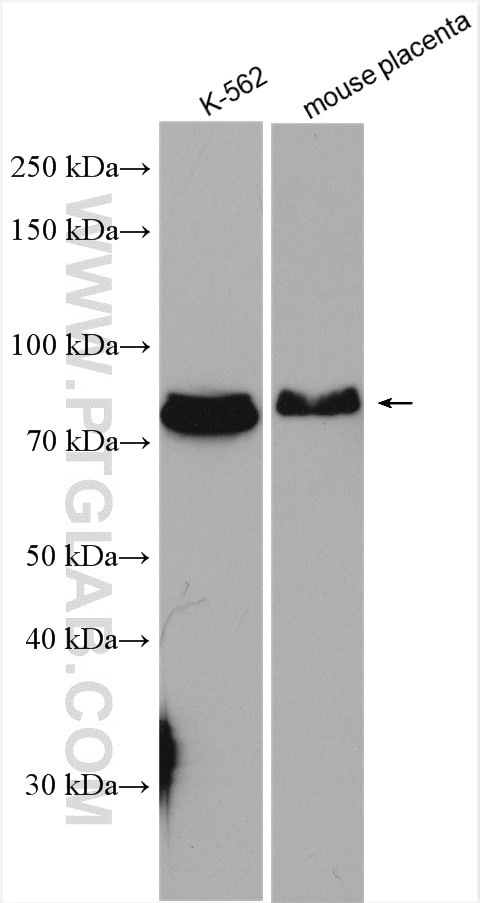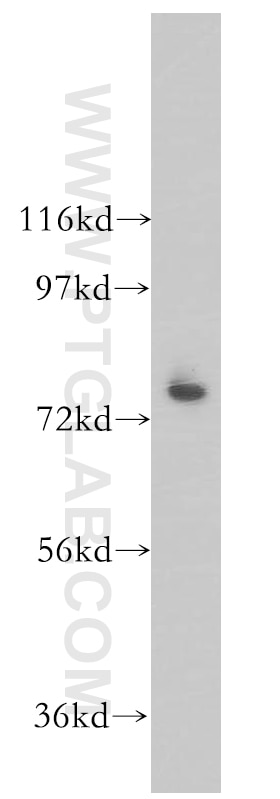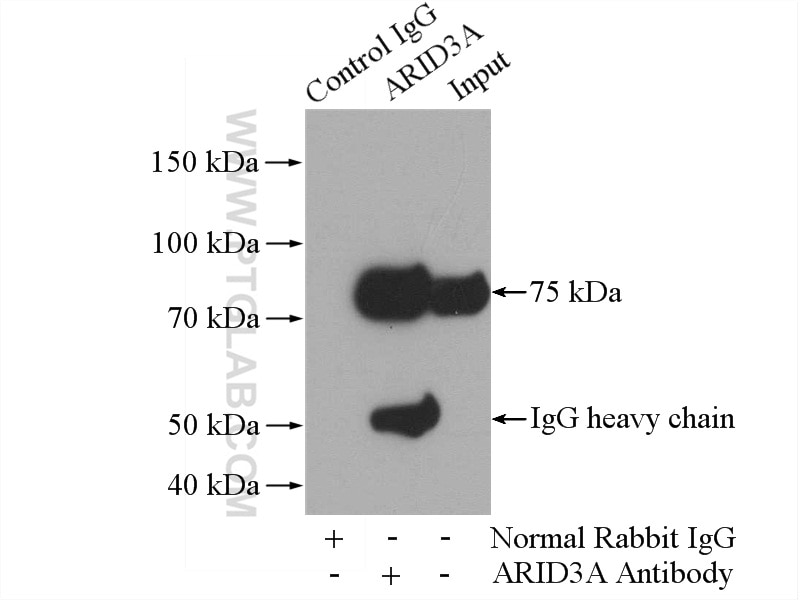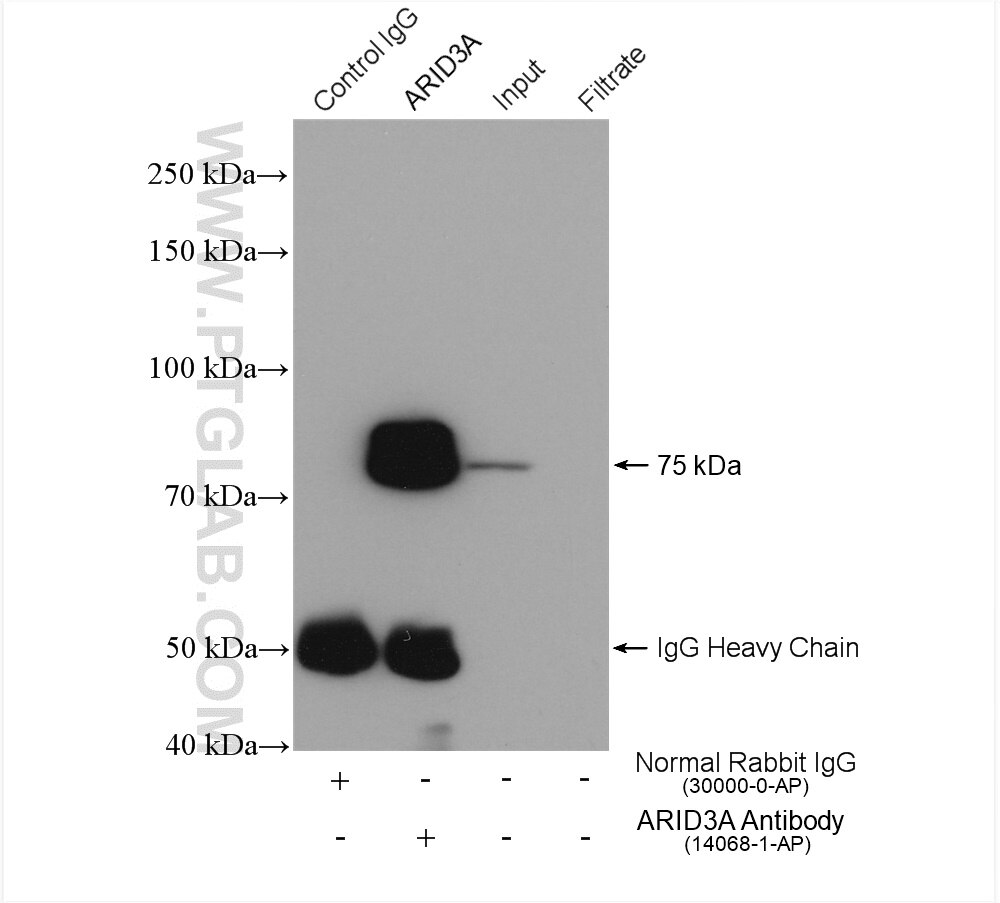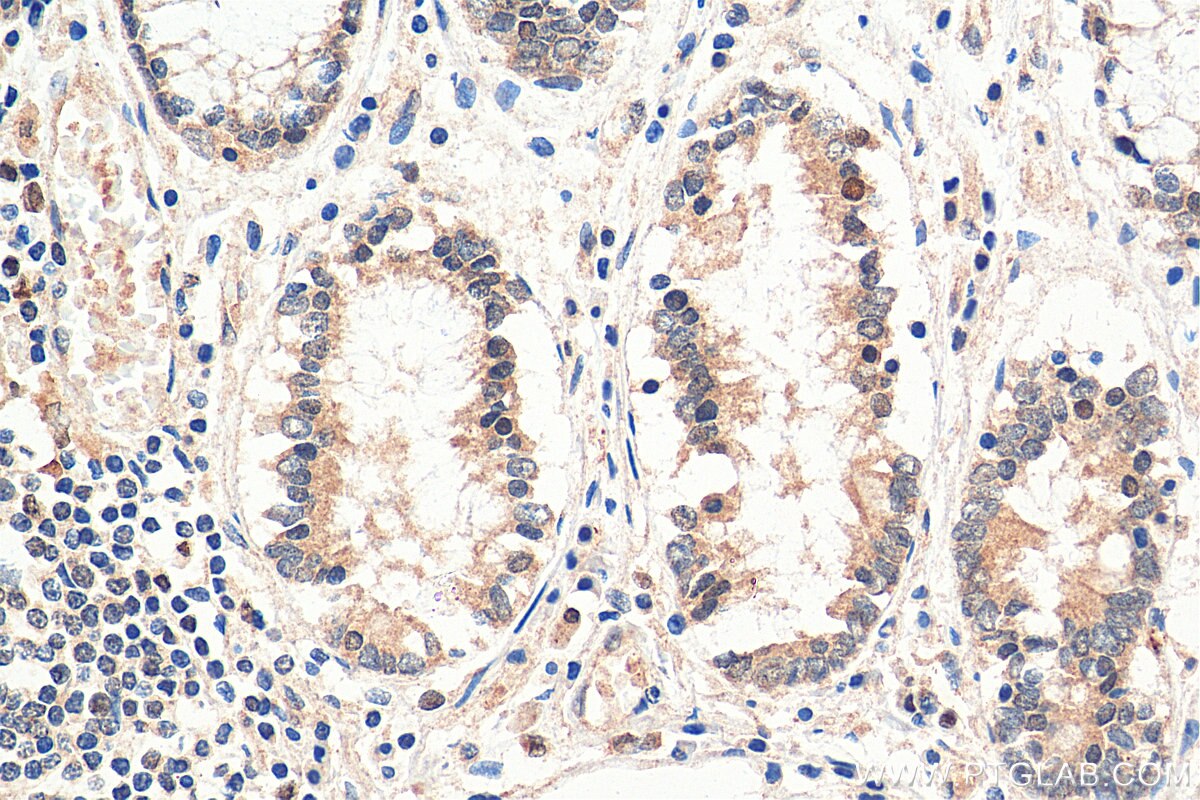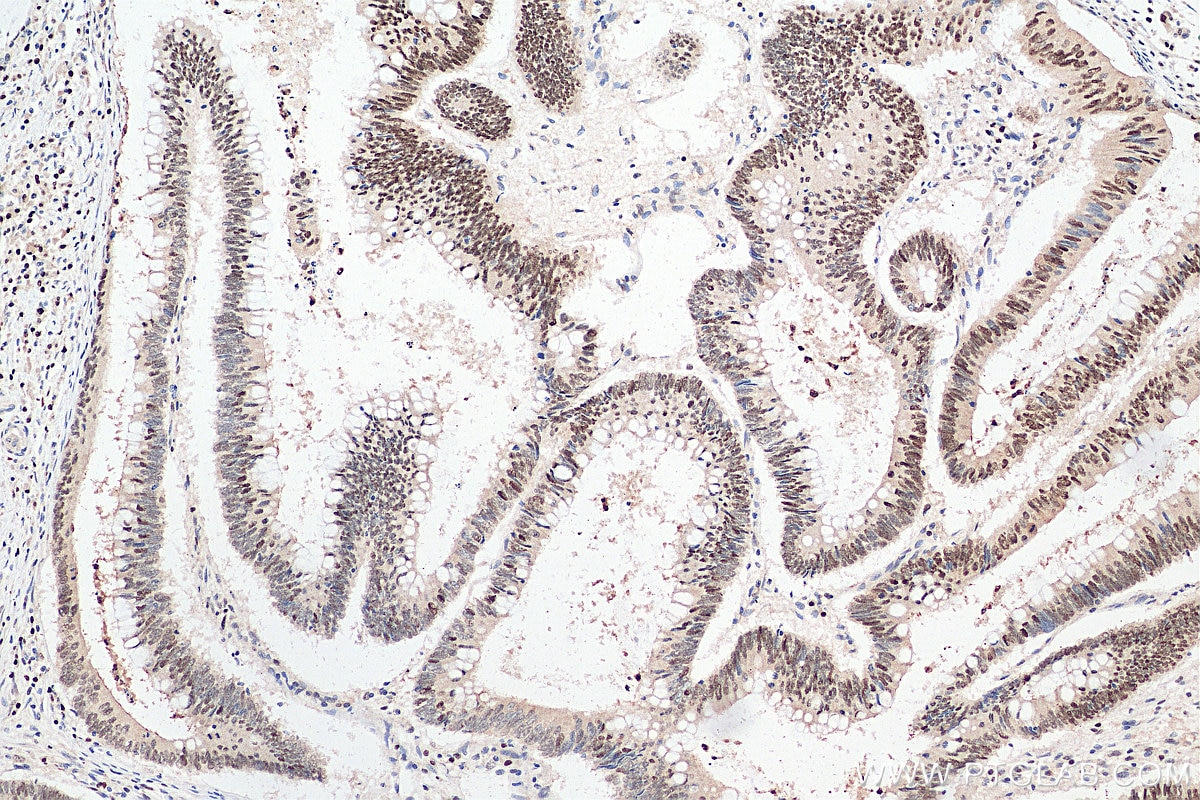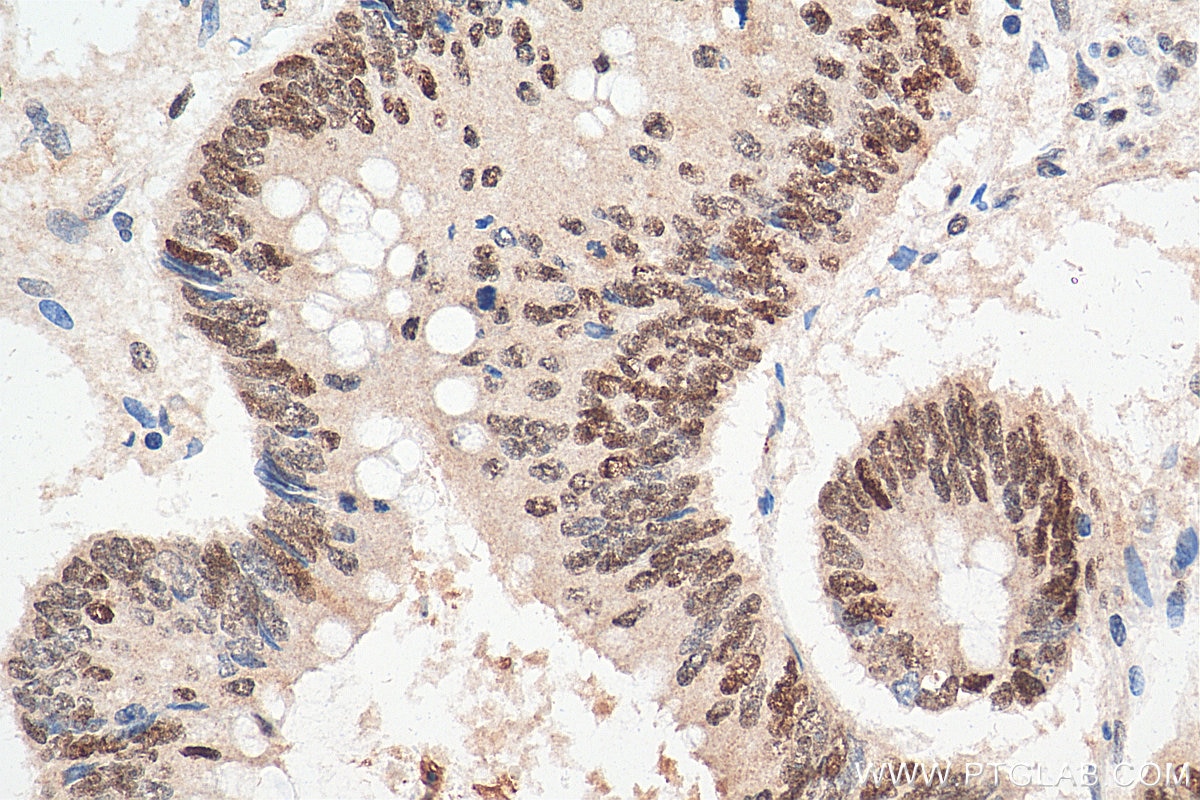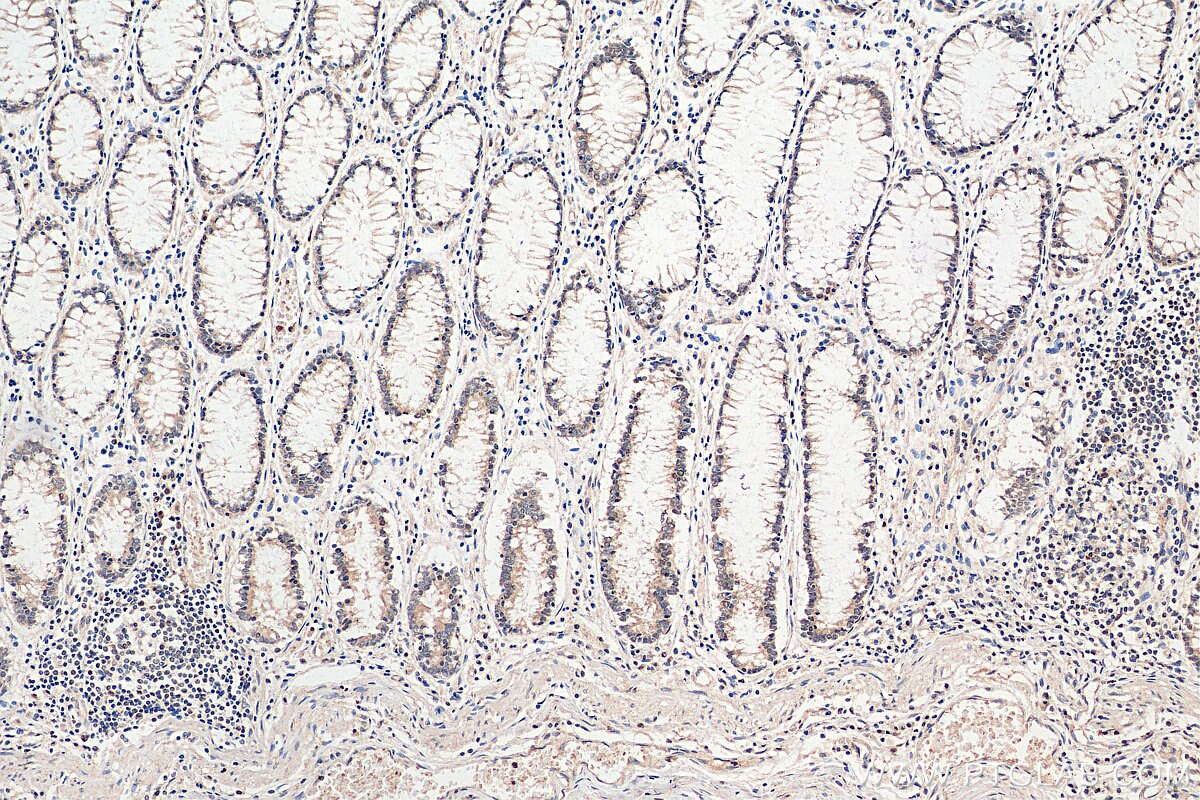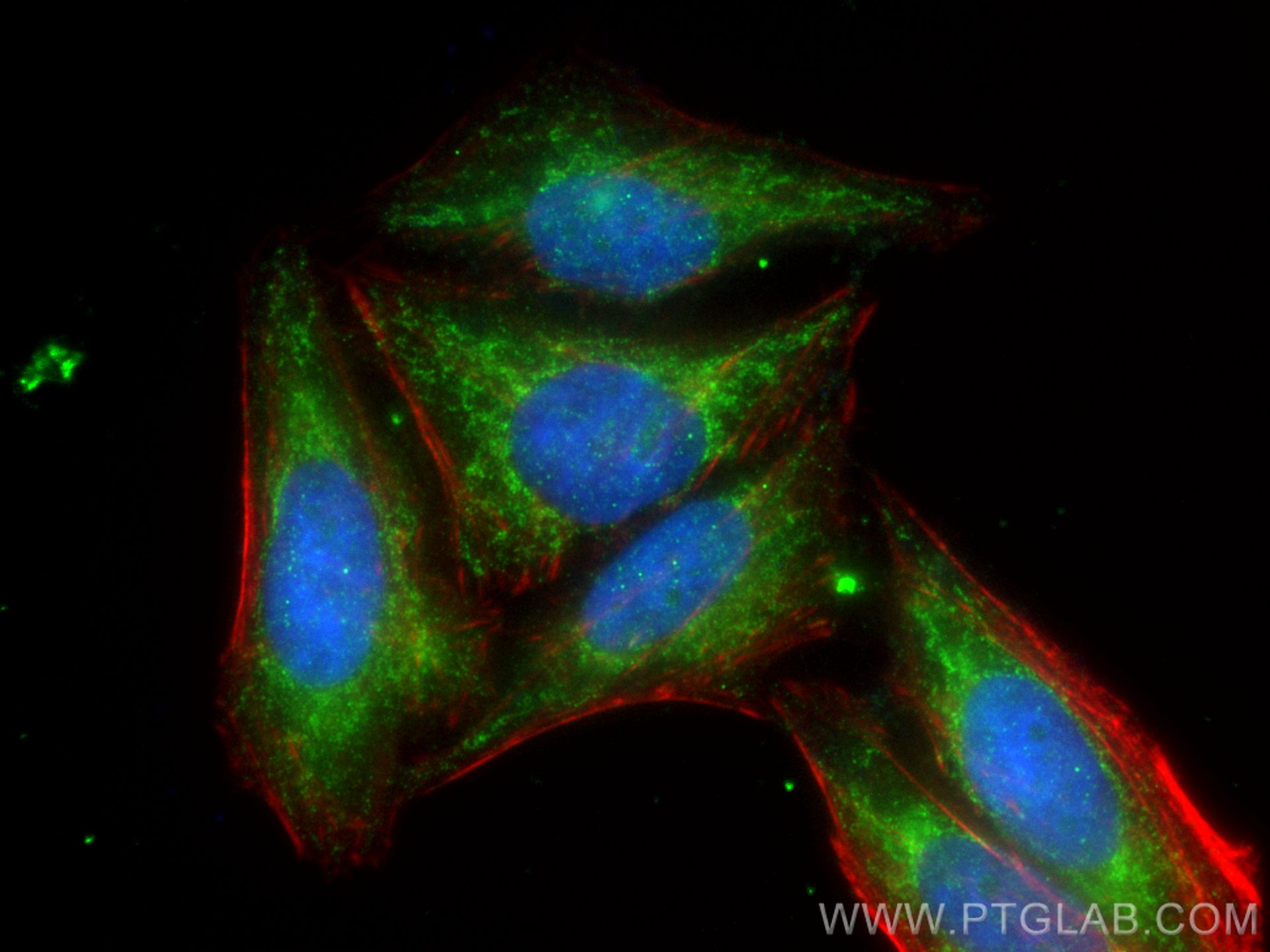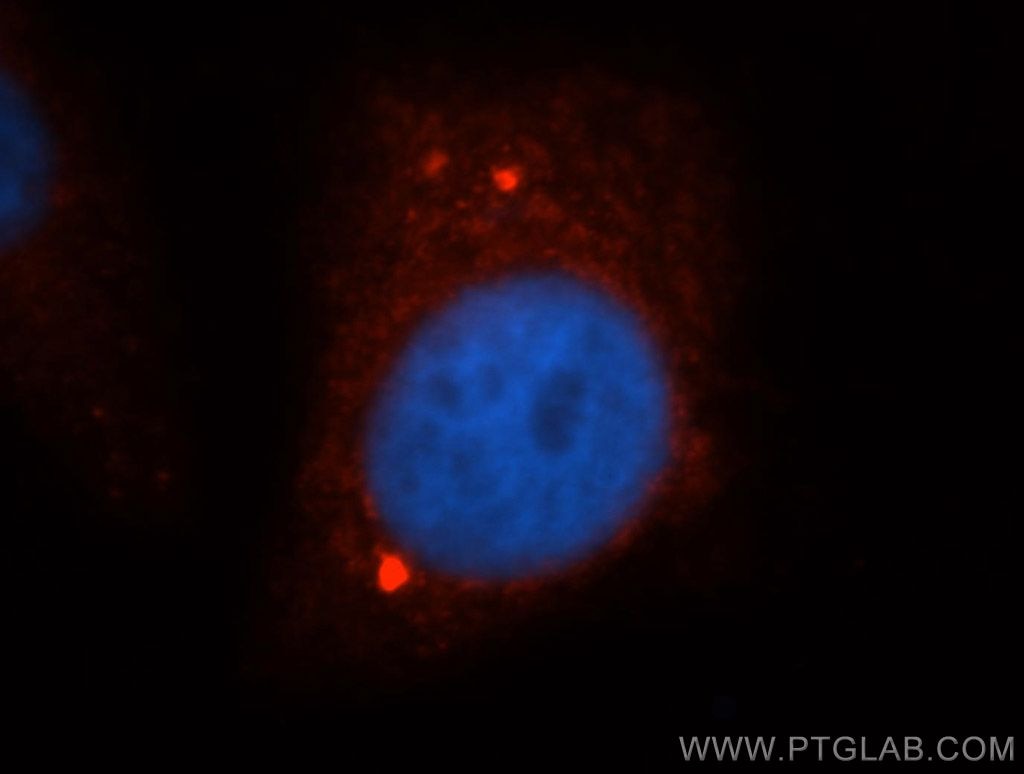Validation Data Gallery
Tested Applications
| Positive WB detected in | K-562 cells, mouse placenta tissue |
| Positive IP detected in | K-562 cells |
| Positive IHC detected in | human colon cancer tissue Note: suggested antigen retrieval with TE buffer pH 9.0; (*) Alternatively, antigen retrieval may be performed with citrate buffer pH 6.0 |
| Positive IF/ICC detected in | HepG2 cells |
Recommended dilution
| Application | Dilution |
|---|---|
| Western Blot (WB) | WB : 1:500-1:2000 |
| Immunoprecipitation (IP) | IP : 0.5-4.0 ug for 1.0-3.0 mg of total protein lysate |
| Immunohistochemistry (IHC) | IHC : 1:300-1:1200 |
| Immunofluorescence (IF)/ICC | IF/ICC : 1:50-1:500 |
| It is recommended that this reagent should be titrated in each testing system to obtain optimal results. | |
| Sample-dependent, Check data in validation data gallery. | |
Published Applications
| KD/KO | See 2 publications below |
| WB | See 7 publications below |
| IHC | See 5 publications below |
| IF | See 2 publications below |
| IP | See 1 publications below |
| ChIP | See 2 publications below |
Product Information
14068-1-AP targets ARID3A in WB, IHC, IF/ICC, IP, ChIP, ELISA applications and shows reactivity with human, mouse samples.
| Tested Reactivity | human, mouse |
| Cited Reactivity | human, mouse |
| Host / Isotype | Rabbit / IgG |
| Class | Polyclonal |
| Type | Antibody |
| Immunogen |
CatNo: Ag5124 Product name: Recombinant human ARID3A protein Source: e coli.-derived, PGEX-4T Tag: GST Domain: 244-593 aa of BC060828 Sequence: FLDDLFSFMQKRGTPVNRIPIMAKQVLDLFMLYVLVTEKGGLVEVINKKLWREITKGLNLPTSITSAAFTLRTQYMEYLYPYECEKRGLSNPNELQAAIDSNRREGRRQSFGGSLFAYSPGGAHGMLSSPKLPVSSLGLAASTNGSSITPAPKIKKEEDSAIPITVPGRLPVSLAGHPVVAAQAAAVQAAAAQAAVAAQAAALEQLREKLESAEPPEKKMALVADEQQRLMQRALQQNFLAMAAQLPMSIRINSQASESRQDSAVNLTGTNGSNSISMSVEINGIMYTGVLFAQPPAPTPTSAPNKGGGGGGSSSSNAGGRGGNTGTSGGQAGPAGLSTPSTSTSNNSLP 相同性解析による交差性が予測される生物種 |
| Full Name | AT rich interactive domain 3A (BRIGHT-like) |
| Calculated molecular weight | 63 kDa |
| Observed molecular weight | 75 kDa |
| GenBank accession number | BC060828 |
| Gene Symbol | ARID3A |
| Gene ID (NCBI) | 1820 |
| RRID | AB_2060390 |
| Conjugate | Unconjugated |
| Form | |
| Form | Liquid |
| Purification Method | Antigen affinity purification |
| UNIPROT ID | Q99856 |
| Storage Buffer | PBS with 0.02% sodium azide and 50% glycerol{{ptg:BufferTemp}}7.3 |
| Storage Conditions | Store at -20°C. Stable for one year after shipment. Aliquoting is unnecessary for -20oC storage. |
Background Information
ARID3A is a nuclear matrix-associated transcription factor that stimulates immunoglobulin heavy chain (IgH) expression and Cyclin E1/E2F-dependent cell cycle progression. It activates IgH transcriptional initiation by binding to ATC-rich P sites within nuclear matrix attachment regions (MARs) flanking the IgH intronic enhancer (Emu) (PMID:17386101). It is the founder of the 13-member (in humans) ARID (AT-Rich Interaction Domain) family, which share a highly conserved DNA binding domain, but functions in diverse biological processes such as cell cycle regulated events, epigenetic post-translational modification, and chromatin remodeling (PMID:15927959,11959810,11283269). The expression molecular weight observed is consistent with what has been described in the literature (PMID: 15922553, 19436740).
Protocols
| Product Specific Protocols | |
|---|---|
| IF protocol for ARID3A antibody 14068-1-AP | Download protocol |
| IHC protocol for ARID3A antibody 14068-1-AP | Download protocol |
| IP protocol for ARID3A antibody 14068-1-AP | Download protocol |
| WB protocol for ARID3A antibody 14068-1-AP | Download protocol |
| Standard Protocols | |
|---|---|
| Click here to view our Standard Protocols |
Publications
| Species | Application | Title |
|---|---|---|
Cell Rep Med Personalized drug screening in patient-derived organoids of biliary tract cancer and its clinical application | ||
PLoS Genet Let-7 Represses Carcinogenesis and a Stem Cell Phenotype in the Intestine via Regulation of Hmga2. | ||
FASEB J Exosomal let-7b-5p deriving from parietal epithelial cells attenuate renal fibrosis through suppression of TGFβR1 and ARID3a in obstructive kidney disease | ||
Carcinogenesis ARID3A promotes the development of colorectal cancer by upregulating AURKA.
| ||
Ann Surg Oncol High Expression of AT-Rich Interactive Domain 3A (ARID3A) is Associated with Good Prognosis in Colorectal Carcinoma. | ||
Cell Biol Int ARID3A plays a key regulatory role in palmitic acid-stimulated milk fat synthesis in mouse mammary epithelial cells
|

